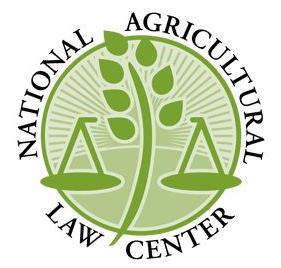 W
WThe European Union's Animal By-Products Regulations allows for the treatment of some animal by-products in composting and biogas plants. The following article describes procedures required to allow solid outputs from composting plants and anaerobic digesters onto land in the United Kingdom.
 W
WCraft Weed: Family Farming and the Future of the Marijuana Industry is a 2018 MIT Press book by Ryan Stoa. In it, he argues for an American cannabis industry that looks more like the craft beer industry, and less like "Big Marijuana" equivalent of Anheuser-Busch. The author is an associate professor of law at Concordia University School of Law in Boise, Idaho.
 W
WDunmore v Ontario (AG), 2001 SCC 94 is a leading Supreme Court of Canada decision on the constitutional right to freedom of association under section 2(d) of the Canadian Charter of Rights and Freedoms ("Charter"). The Court held that the lack of a positive framework that protected farm workers from employer reprisals for exercising their associational rights under the Charter constituted a "substantial interference" of their right to freedom of association. The Ontario government responded with the Agricultural Employees Protection Act, which extended only to agricultural workers and prohibited employer reprisals against employees exercising their rights under section 2(d) of the Charter.
 W
WThe Farm Debt Mediation Act ("FDMA") is an act of the Parliament of Canada that enables a debt advisory service to insolvent farmers by Agriculture and Agri-Food Canada, as well as certain protective provisions available to help facilitate mediation with creditors while allowing such farmers to continue their operations.
 W
WThe Farm Debt Review Act was an Act of the Parliament of Canada dealing with the farm crisis affecting Canadian agriculture in the 1980s. It was in force from 1986 to 1998.
 W
WThe Farmers' Creditors Arrangement Act, was an Act of the Parliament of Canada that attempted to remedy a wave of insolvencies that occurred among Canadian farmers during the Great Depression. Originally framed to deal with such problems nationwide, it was gradually reduced in scope, and was reenacted in 1943 to apply solely to farmers in the Prairie Provinces.
 W
WGrazing rights is the right of a user to allow their livestock to feed (graze) in a given area.
 W
WThe National Agricultural Law Center at the University of Arkansas is a federally funded, nonpartisan research and information center that serves as the nation's leading source of agricultural and food law research and information. The Center, created by Congress in 1987, is the only institution of its kind in the United States and serves the nation's vast agricultural community, which includes attorneys, farmers, federal and state policymakers, extension personnel, academics, students, consumers, and others.
 W
WRight to farm laws in the United States deny nuisance lawsuits against farmers who use accepted and standard farming practices and have been in prior operation even if these practices harm or bother adjacent property owners or the general public. Agricultural nuisances may include noise, odors, visual clutter and dangerous structures. All 50 states have some form of Right to Farm law.